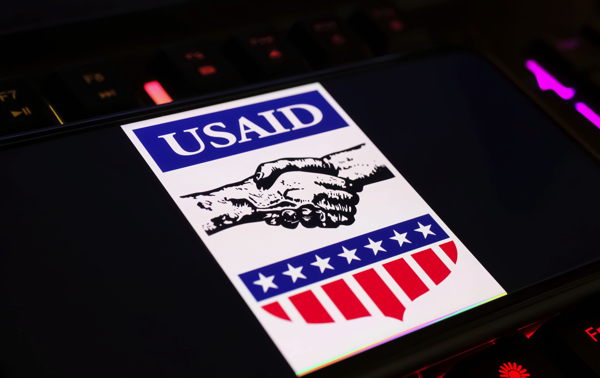 Parler
Parler Gab
Gab
- CIA Director John Ratcliffe revealed that the Obama administration ordered the FBI not to arrest Hillary Clinton for espionage, despite her alleged violations of handling classified defense information.
- Lisa Page, a former FBI lawyer, confirmed under oath that the Department of Justice instructed the FBI not to charge Clinton for gross negligence in handling classified materials, indicating potential political interference.
- This revelation is part of a broader pattern of alleged political interference in federal investigations, particularly in the Clinton email scandal, raising concerns about the impartiality of the justice system.
- The exposure of the Obama administration's role in the Clinton email investigation has far-reaching implications for trust in the justice system and highlights the ongoing tension between political influence and impartial administration of justice.
The smoking gun: Lisa Page's testimony
The core of Ratcliffe's revelation rests on the testimony of Lisa Page, a former FBI lawyer who was deeply involved in the Clinton email investigation. In an interview with Ratcliffe, Page confirmed under oath that the Department of Justice (DOJ) instructed the FBI not to consider charging Clinton for gross negligence in handling classified materials. The transcript excerpt is unequivocal: John Ratcliffe: "Okay. So let me, if I can, I know I’m testing your memory, but when you say advice you got from the Department, you’re making it sound like it was the Department that told you: ‘You’re not going to charge gross negligence because we’re the prosecutors and we’re telling you we’re not going to—’" Lisa Page: "That is correct." This admission is a damning indictment of the Obama administration's role in what many have long suspected: a politically motivated effort to shield Clinton from legal consequences. The implications are profound, suggesting that high-level officials were willing to compromise the rule of law for political gain.A pattern of interference
This revelation is not an isolated incident. It is part of a broader pattern of alleged political interference in federal investigations that has been a source of controversy and distrust in the U.S. justice system. The Clinton email scandal, which came to light in 2015, was a significant issue in the 2016 presidential election. Clinton's use of a private email server for government communications raised serious concerns about the security and handling of classified information. Despite these concerns, then-FBI Director James Comey announced in July 2016 that no charges would be filed, stating, "Our judgment is that no reasonable prosecutor would bring such a case." Ratcliffe's disclosure adds a new layer to this controversy, suggesting that the decision not to charge Clinton was not based on the merits of the case but on political considerations. This aligns with criticisms from Republicans and Trump allies, who have long alleged that Clinton received preferential treatment. The historical context of this case is crucial because it highlights the ongoing tension between political influence and the impartial administration of justice.The broader implications
The revelation of the Obama administration's role in the Clinton email investigation has far-reaching implications for trust in the justice system. If the highest levels of government can dictate the outcomes of federal investigations, it undermines the fundamental principle that no one is above the law. This is particularly concerning in a democratic society where the rule of law is a cornerstone of governance. President Trump, who has been a vocal critic of the Clinton email investigation and the subsequent Russia collusion probe, reacted swiftly to the news. In a tweet, he said, "The just revealed FBI Agent Lisa Page transcripts make the Obama Justice Department look exactly like it was, a broken and corrupt machine. Hopefully, justice will finally be served. Much more to come!" The impact of this revelation extends beyond the Clinton case. It calls into question the integrity of other high-profile investigations, including the Russia collusion probe, which was initiated in May 2017. If the FBI and DOJ can be swayed by political pressure, it raises serious concerns about the fairness and objectivity of their work.A call for accountability
The revelation that the Obama administration ordered the FBI not to arrest Hillary Clinton for espionage is a stark reminder of the importance of accountability and transparency in the justice system. It highlights the need for robust oversight mechanisms to prevent political interference and ensure that the rule of law is upheld. As this story continues to unfold, it is crucial that the American people demand answers and that those responsible for any misconduct be held accountable. The integrity of our justice system is not a partisan issue; it is a fundamental requirement for a functioning democracy. The American people deserve to know the truth, and they deserve a justice system that is free from political influence and bias. Sources include: YourNews.com X.com CBSNews.comTrump administration gives schools 14 days to scrap DEI policies or lose federal funding
By Cassie B. // Share
FDA misled the judiciary about Pfizer’s vaccine documents
By News Editors // Share
How your tax dollars funded Hamas: USAID’s $164 million scandal exposed
By Willow Tohi // Share
Governments continue to obscure COVID-19 vaccine data amid rising concerns over excess deaths
By patricklewis // Share
Tech giant Microsoft backs EXTINCTION with its support of carbon capture programs
By ramontomeydw // Share
Germany to resume arms exports to Israel despite repeated ceasefire violations
By isabelle // Share










